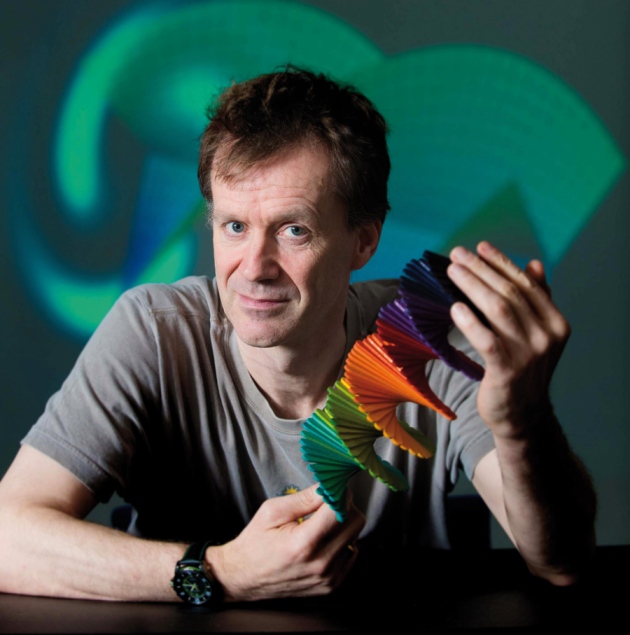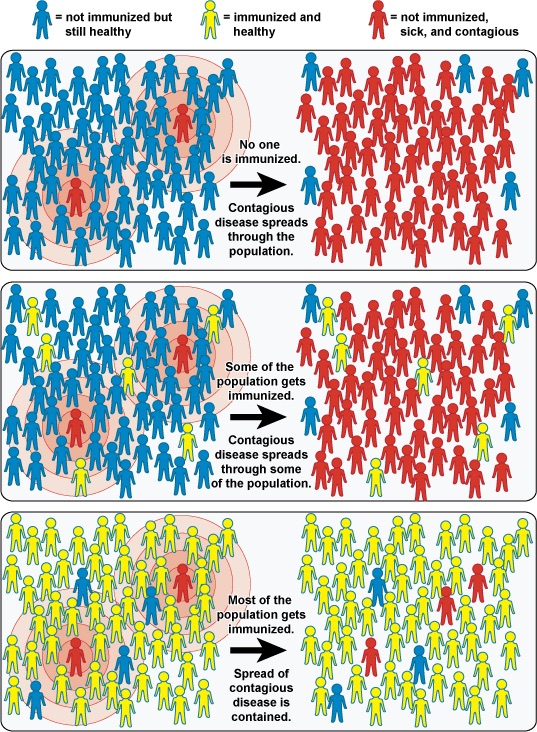Thursday, February 26, 2015
Turing's Triumph
"What 'The Imitation Game' didn't tell you about Turing's greatest triumph". (Via Rand Simberg.)
Seeing Through Opaque Materials
"Physicists are finding ways to see through opaque materials such as living tissue".
Wednesday, February 25, 2015
Ancient Babylonian Customer Service Complaint
"An Ancient Babylonian Customer Service Complaint Inscribed on a Clay Tablet Around 1750 BC".
Click through to see the translation. The customer was very irate!
Click through to see the translation. The customer was very irate!
The Weird World of Carbon Fiber
"The wild weird world of carbon fiber: How can something that starts out like cloth end up being so strong and light?"
Tuesday, February 24, 2015
Illusions From Johansson
"Mind-Bending Optical Illusions By Swedish Photoshop Master Erik Johansson". (Via N.L.)
Asian Penalty in College Admissions
The LA Times discusses the "Asian Penalty" when applying to elite colleges:
Lee's next slide shows three columns of numbers from a Princeton University study that tried to measure how race and ethnicity affect admissions by using SAT scores as a benchmark. It uses the term “bonus” to describe how many extra SAT points an applicant's race is worth. She points to the first column.
African Americans received a “bonus” of 230 points, Lee says.
She points to the second column. “Hispanics received a bonus of 185 points.”
The last column draws gasps.
Asian Americans, Lee says, are penalized by 50 points — in other words, they had to do that much better to win admission.
“Do Asians need higher test scores? Is it harder for Asians to get into college? The answer is yes,” Lee says.
“Zenme keyi,” one mother hisses in Chinese. How can this be possible?
Monday, February 23, 2015
Boston and Waze
Wired: "Boston Is Partnering With Waze to Make Its Roads Less of a Nightmare". (Via H.R.)
61 Incredible Things Robots Can Now Do
"61 Incredible Things Robots Can Now Do".
(Via Rand Simberg who also notes, "The implications for military applications are pretty terrifying.")
(Via Rand Simberg who also notes, "The implications for military applications are pretty terrifying.")
Sunday, February 22, 2015
The Social Impact of the Photocopier
"How the Photocopier Changed the Way We Worked -- and Played".
Some excerpts:
Some excerpts:
Employees would sneak their own personal items on the machine, copying their IRS returns, party invitations, recipes. Chain letters began demanding participants not only forward the letter, but send out 20 copies—because, hey, now anyone could! And people quickly realized they could make paper replicas of physical objects, placing their hands—or, whipping down their pants, their rear ends—on the copier glass. This copying of objects could be put to curiously practical purposes. Instead of describing the physical contents of a perp’s pockets when jailing him, police would just dump them onto the 914’s glass and hit copy...Secrets were harder to keep, documents easier to leak. Daniel Ellsberg used a copier to reproduce the Pentagon Papers (even having his children help make the replicas at a friend’s office). Fearful of the copier’s power, the Soviet Union tightly controlled access to the machines...
How That Alcoholic Drink Is Made
"How the most popular alcoholic drinks around the world are made". (Via H.R.)
$6 Watch Worth $35K
Man finds rare watch selling at Goodwill for $6. Recognizes its value and resells it for $35,000. Nice!
I think this is a completely legitimate way to leverage one's knowledge, as discussed by Diana and Greg in this podcast episode from a few years ago, "Profiting from the Ignorance of Others".
I think this is a completely legitimate way to leverage one's knowledge, as discussed by Diana and Greg in this podcast episode from a few years ago, "Profiting from the Ignorance of Others".
Saturday, February 21, 2015
The Great SIM Heist
The Great SIM Heist: How Spies Stole the Keys to the Encryption Castle"
As Bruce Schneier summarizes: "NSA and/or GCHQ hacked into the Dutch SIM card manufacturer Gemalto, stealing the encryption keys for billions of cell phones. People are still trying to figure out exactly what this means, but it seems to mean that the intelligence agencies have access to both voice and data from all phones using those cards."
As Bruce Schneier summarizes: "NSA and/or GCHQ hacked into the Dutch SIM card manufacturer Gemalto, stealing the encryption keys for billions of cell phones. People are still trying to figure out exactly what this means, but it seems to mean that the intelligence agencies have access to both voice and data from all phones using those cards."
Thursday, February 19, 2015
Real-Life Q
"Meet the 'Real-Life Q' Who Built Secret Spy Gadgets for a Living".
Among his favorite inventions:
Among his favorite inventions:
How about a miniature transmitter, disguised in bird droppings. It splats against someone's window. You know how birds come along and shit on your window, it's sort of a whiteish, blackish, greyish mess and you see a little drip at the bottom? Imagine that drip is actually highly conductive silver paint. That long drip is actually the antenna, and in that gob is a very tiny transmitter with a tiny battery. A birdshit transducer was one of my favorites.(Via H.R.)
Wednesday, February 18, 2015
Light Posting
Admin Note: Posting will be lighter than usual the rest of this week, due to external obligations.
Tuesday, February 17, 2015
Chocolate in Space
"The Rich and Flavorful History of Chocolate in Space":
The most common form of chocolate flown today and throughout the 35-year history of the space shuttle program is M&Ms -- or as NASA refers to them, “candy-coated chocolates”. Even now, M&Ms are part of the standard menu for astronauts serving stints aboard the International Space Station (ISS). Small volumes of the colorful candies are prepared in clear, nondescript packaging for each mission.
“M&Ms not only serve as foods for the astronauts, but also as entertainment,” Pearlman says. “Astronauts will often release handfuls of them and then catch them with their mouths as the pieces float around.”
In many ways, M&Ms are the perfect space snack. They are bite-sized and, unlike other candies and foods, aren’t likely to crumble. “M&Ms are singular pieces that you can eat very easily, and you can eat multiples of them at one time. And because you’re not likely to bite one in half, you won’t make a mess,” Levasseur says.
Monday, February 16, 2015
[Off Topic] Hsieh Forbes Column: "Why You Should Record Your Doctor Visits"
[Off topic] My latest Forbes piece is now out: "Why You Should Record Your Doctor Visits".
Here is the opening:
Fortunately, modern technology now makes it easier for patients to record these important discussions with physicians, for instance with a smartphone.
For more information on the benefits of this practice, read the full text of "Why You Should Record Your Doctor Visits".
Here is the opening:
NBC's Brian Williams has gone from being a respected news anchor to the butt of Internet jokes after he recanted a false story about being shot down in a helicopter over Iraq. As a result of the subsequent controversy, NBC has suspended Williams without pay for 6 months -- essentially costing him $5 million.During my research for this piece, I learned that "40-80% of medical information provided by healthcare practitioners is forgotten immediately" and "almost half of the information that is remembered is incorrect" (!)
But whether or not Williams' story was an innocent "false memory" or a deliberate lie, it is the case that false or unreliable memories are a surprisingly common phenomenon. In a health care setting, patients' false memories of medical conversations might cost them more than money -- it might even endanger their lives. Hence, patients may wish to record their doctors' visits to protect themselves...
Fortunately, modern technology now makes it easier for patients to record these important discussions with physicians, for instance with a smartphone.
For more information on the benefits of this practice, read the full text of "Why You Should Record Your Doctor Visits".
Bank Hackers Steal Millions via Malware
NYT: "Bank Hackers Steal Millions via Malware".
From the article: "This is likely the most sophisticated attack the world has seen to date in terms of the tactics and methods that cybercriminals have used to remain covert."
From the article: "This is likely the most sophisticated attack the world has seen to date in terms of the tactics and methods that cybercriminals have used to remain covert."
Doves Typeface
"The Gorgeous Typeface That Drove Men Mad and Sparked a 100-Year Mystery". (Via H.R.)
Sunday, February 15, 2015
Google Dog Robot
"Google's dog robot looks too real for comfort when getting kicked":
The 160-pound, four-legged Spot is remarkably agile. It navigates an office on its own, then heads outside to climb a steep hill and a flight of stairs. Spot safely makes its way over rough terrain, which it navigates with the help of its head-mounted sensor. At one point the developers pair Spot with the original Big Dog, which Spot basically humiliates...
The most disturbing parts of the video, however, come when office workers try to kick Spot over, first inside the office and then in the parking lot. The second kick (at 0:28 in the video) is so forceful that Spot has to scramble to stay upright, but it does.
It’s at this point that you should get really freaked out, because this robot struggling to stay upright looks very much like a living thing trying to do the same.
Thursday, February 12, 2015
Dying on Facebook Just Got a Little Less Awkward
Facebook will now let you control what happens to your account after your death, including naming a "legacy contact".
Wednesday, February 11, 2015
Florida Pastor Plans To Convert Robots To Christianity
"Florida pastor plans to convert robots to Christianity":
Reverend Christopher Benek, associate pastor of Providence Presbyterian Church in Florida, believes advanced forms of artificial intelligence should be welcomed into the Christian faith.
"I don't see Christ's redemption limited to human beings," Benek said in an interview with the futurist Zoltan Istvan. "It's redemption to all of creation, even AI.
"If AI is autonomous, then we should encourage it to participate in Christ's redemptive purposes in the world."
Tuesday, February 10, 2015
Hiding Morse Code In A Pop Song
How the Colombian army sent a hidden message to hostages, by hiding Morse code within a pop song:
With the help of a military policeman skilled in Morse, they coded the message: "19 people rescued. You are next. Don’t lose hope." It was a signal to boost morale and indicate that help was nearby. Portela wrote the song and the lyrics with composer Amaury Hernandez, creating a thinly-veiled ballad about life as a hostage: "In the middle of the night / Thinking about what I love the most / I feel the need to sing… About how much I miss them." He even added the lyric, "Listen to this message, brother," just before the coded message kicks in. The code sounds like a brief synth interlude just after the chorus...
The song was played on over 130 small stations and heard by 3 million people. Though most Colombians in major cities would not even recognize the song, it became popular in the rural areas controlled by the FARC. By December 2010, "Better Days" was echoing across the jungle. And the plan worked.
"We know of hostages who heard the message and were able to escape and provide information that led to the release of more hostages," says Colonel Espejo..
One former hostage was able to confirm the song’s effectiveness, according to Col. Espejo. He told Ortiz of a clandestine operation that resulted in the release of Private Joshua Alvarez. In his military psychological evaluation, Col. Espejo says that the soldier spoke of hearing "the code hidden in the song," and revealed how the message was passed from soldier to soldier. The song was even enjoyed by the FARC, who were oblivious to its secret message.(Via Bruce Schneier.)
Um Vs. Uh
"Um, here's an, uh, map that shows where Americans use 'um' vs. 'uh'".
Click on image to see full-sized version.
Click on image to see full-sized version.
Fruit Vs. Vegetable
The time that the US Supreme Court had to decide if a tomato was a "fruit" or a "vegetable".
Monday, February 09, 2015
Sunday, February 08, 2015
Don't "Peek At His Bagpipes"
William Wallace impersonator sick of female tourists checking under his kilt to "peek at his bagpipes". (Via Debby Witt.)
Thursday, February 05, 2015
Wikipedia Decompriser
This dedicated (or fanatical) Wikipedia editor has made over 47,000 revisions to the site, all consisting of correcting misuses of the phrase "comprised of". (Via H.R.)
Wednesday, February 04, 2015
Tuesday, February 03, 2015
Monday, February 02, 2015
Crazy-Fast Atom-Thick Transistors
"Atom-Thick Silicon Makes Crazy-Fast Transistors":
The material in question, called silicene, comes in layers of silicon just one-atom thick. This structure gives the material fantastic electrical properties, but it also means it’s devilishly tricky to produce and work with. Even testing its basic properties in the lab has proved difficult.
Now Deji Akinwande, a computer engineer at the University of Texas at Austin, has figured out how to work with the stubborn material well enough to make the first silicene transistors. His first-of-their-kind devices are described today in the journal Nature Nanotechnology, and they live up to silicene’s promise by switching with extraordinary speed...
Secret Message Inside WW2 Bullet
"Secret message found inside WW2 bullet is the end to a very funny story". (Via H.R.)
Tip Creep
NYT: "$3 Tip on a $4 Cup of Coffee? Gratuities Grow, Automatically".
Tipping is growing both in the percentage expected as well as the services for which is expected. I'm not sure this is good -- instead, I'd rather see a lot of tipping professions become less tip-based. (Via Marginal Revolution.)
Tipping is growing both in the percentage expected as well as the services for which is expected. I'm not sure this is good -- instead, I'd rather see a lot of tipping professions become less tip-based. (Via Marginal Revolution.)
Sunday, February 01, 2015
Using Game Theory Against Cancer?
NYT: "In the Way Cancer Cells Work Together, a Possible Tool for Their Demise".
I like the idea of creating a "tumor within a tumor". (Via W.D.)
I like the idea of creating a "tumor within a tumor". (Via W.D.)
Robots Will Not Conquer Humanity
Michael Littman: "A world in which humans are enslaved or destroyed by superintelligent machines of our own creation is purely science fiction". (Via Transterrestrial Musings.)
Supply, Demand, Equilibrium
Nice set of short videos from Marginal Revolution University on the concepts of supply, demand, and equilibrium. (Via Kottke.)
Subscribe to:
Comments (Atom)







/cdn0.vox-cdn.com/uploads/chorus_asset/file/2909698/revision_allegralockstadt_verge_camp.0.jpg)










